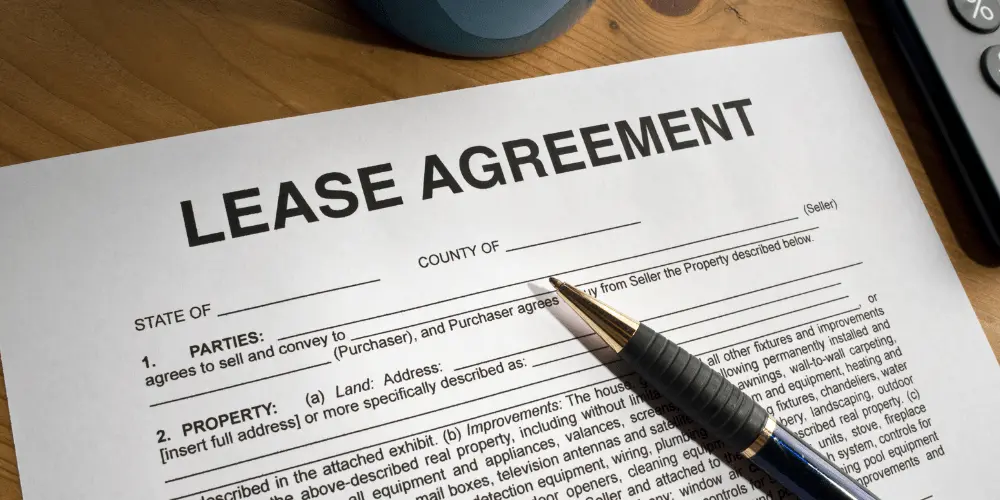
Moving into your first apartment is exciting, but it can also feel overwhelming. For first time renters, a lease is the most important document you will sign. It is more than a piece of paper; it is a binding contract between you and the landlord. The lease agreement sets the rules, responsibilities, and protections for both the lessor and the lessee.
A clear lease helps make your new home safe and stable. It explains how much you will pay, what happens if something breaks, and how long you can occupy the apartment. Without this contract, renters could be left unprotected if disputes arise.
Before you even move in, you will deal with several forms. Most landlords will ask you to fill out an application, provide references, and share proof of income. You may also be asked to submit a credit report. These documents help the landlord verify that you can make payments on time and afford the costs of the rental.
Keep in mind that the application may come with fees, and not all of them are refundable. Ask about expenses before you sign anything. It’s also wise to walk through the apartment, note any repairs needed, and confirm that utilities like water and electricity are working.
Once your application is approved, you’ll receive a lease agreement. This contract is the backbone of your rental relationship. It should be read carefully, clause by clause. Too many renters sign without understanding what they’ve agreed to, only to face unexpected costs later.
The lease should explain the rent amount, payment methods, due dates, maintenance responsibilities, and rules for residents. It should also identify the property, the landlord or lessor, and the tenants who will live there.
Leases are full of legal terms that can be confusing. Some key terms you should look for include:
Knowing these key terms helps renters avoid disputes with neighbors, misunderstandings with landlords, and the stress of unexpected fees.
The lease will outline when rent is due, how payments can be made, and what happens if you are late. Many landlords allow online payments, while others require checks or money orders. If you pay rent late, you may face late fees or even legal action if the problem continues.
It’s also important to understand other monthly expenses, such as monthly utilities, service charges, or maintenance costs that aren’t included in rent. Keeping a budget will help you manage savings, stay current on payments, and avoid financial disputes with your landlord.
Your lease terms control not just the rent but also the smaller details that shape your monthly budget. This section of the agreement explains your financial obligations beyond the base rental amount.
Look closely at whether utilities are included. If not, you will be responsible for electricity, water, gas, and possibly trash collection. Confirm how these services are billed, and ask the landlord for past costs to avoid surprises.
Most landlords require a security deposit before you move in. This money is held to cover damages, unpaid rent, or unpaid utility bills. You should receive a written note that states how much you paid and under what conditions you can receive a refund.
Sometimes a landlord may ask for a higher security deposit. This usually happens if your credit report shows late payments, if your income is close to the minimum requirement, or if you are a first time renter without a strong history. To protect yourself, verify that the deposit is capped under local laws and keep all receipts.
An apartment that advertises “included utilities” might only cover water and trash, not electricity or internet. Always ask for details in writing. If you share rooms with roommates, decide early how you will split expenses and log payments. This prevents disputes with both the landlord and other residents.
Many renters overlook insurance, thinking the landlord’s policy will cover their belongings. In most cases, the landlord’s insurance only protects the building, not your furniture, clothes, or electronics.
Renters insurance is affordable and provides coverage if your items are stolen, damaged, or destroyed. It also includes liability coverage if someone is hurt in your apartment. Some landlords require proof of insurance before you move in, so be ready to show a certificate of coverage.
If a pipe bursts and damages your couch, the landlord’s insurance will usually fix the pipe and repair the unit. It won’t replace your couch. That’s why renters insurance is key for first apartment renters. Policies can be customized to cover the value of your property, giving you peace of mind.
The rental process can be stressful, and scammers know first time renters may not be familiar with common red flags. Protect yourself by slowing down and checking every detail.
When searching for your first apartment or new home, never wire money or send payment before touring the property. If a landlord refuses to meet in person or pressures you to sign fast, consider it a red flag.
Verify the lessor’s identity, confirm the property address, and check online maps to ensure the apartment actually exists. Walk around the neighborhood if possible. Scams often use copied photos and fake addresses to trick renters.

For more detailed tips, read the FTC’s guide on avoiding rental listing scams.
While most first-time renters are focused on apartments, it helps to know how commercial leases work, especially if you’re thinking about renting a storefront or office.
Commercial leases often shift more costs to the tenant. You may be responsible for property taxes, insurance, and maintenance costs through what’s called a “triple-net lease.” These agreements can be complex, and legal counsel is often needed to review them. Unlike residential leases, commercial leases may not provide the same consumer protections, so always negotiate and verify each clause.
Life changes quickly. You may need to lease early to move for a new job, care for a family member, or pursue another opportunity. Your lease agreement should include a clause that explains what happens if you vacate before the specified period ends.
Breaking a lease can lead to fees, loss of your security deposit, or legal disputes. Some landlords will let you sublet the unit, while others require you to cover rent until a new tenant signs. It’s important to know your options before you sign.
For a deeper guide on this topic, read Credit.org’s article on breaking a lease early. It outlines strategies to reduce costs and negotiate fairly.
If you must end your lease early, negotiate respectfully. Offer to find a new tenant, pay a reduced fee, or cover advertising expenses. Get any agreement in writing, and verify it follows local laws. Taking these steps can prevent disputes with the landlord and help you secure a good reference for your next rental.
When you finally get the keys to your first apartment, don’t rush to unpack. Instead, walk through the unit with a checklist.
Check that utilities like water, electricity, and heat are working. Test each appliance, look for repairs that need attention, and note any damage. Take photos of walls, floors, and furniture if the unit is furnished. This protects you from being charged later for issues you didn’t cause.
Your lease should explain maintenance responsibilities. Minor repairs, like changing light bulbs, may be on you. Major issues, like plumbing or structural problems, are usually the landlord’s duty. Report problems in writing and keep copies of all requests.
Many first-time renters focus on rent but overlook other expenses. Beyond monthly payments, you may face:
Keeping a simple budget helps balance these expenses with savings. You can also set up a log to track payments, due dates, and service requests. This habit reduces stress and keeps your rental process smooth.
Here’s a simple numbered guide for first-time renters to follow from start to finish:
Leases can feel complicated, but you don’t have to figure them out alone. Credit.org’s Rent4Success rental counseling program is designed to prepare first-time renters for success. Our counselors can walk you through lease terms, help you budget for rent and utilities, and explain your rights as a tenant. You can also explore our guides, such as how much rent you can afford without going broke, using a rent calculator before signing a lease, and apartment hunting on a budget. With the right tools and counseling, you’ll feel confident when you move into your first apartment.